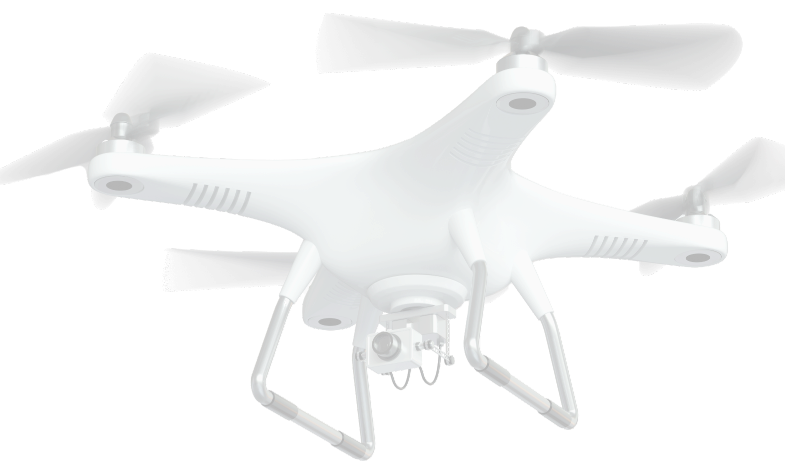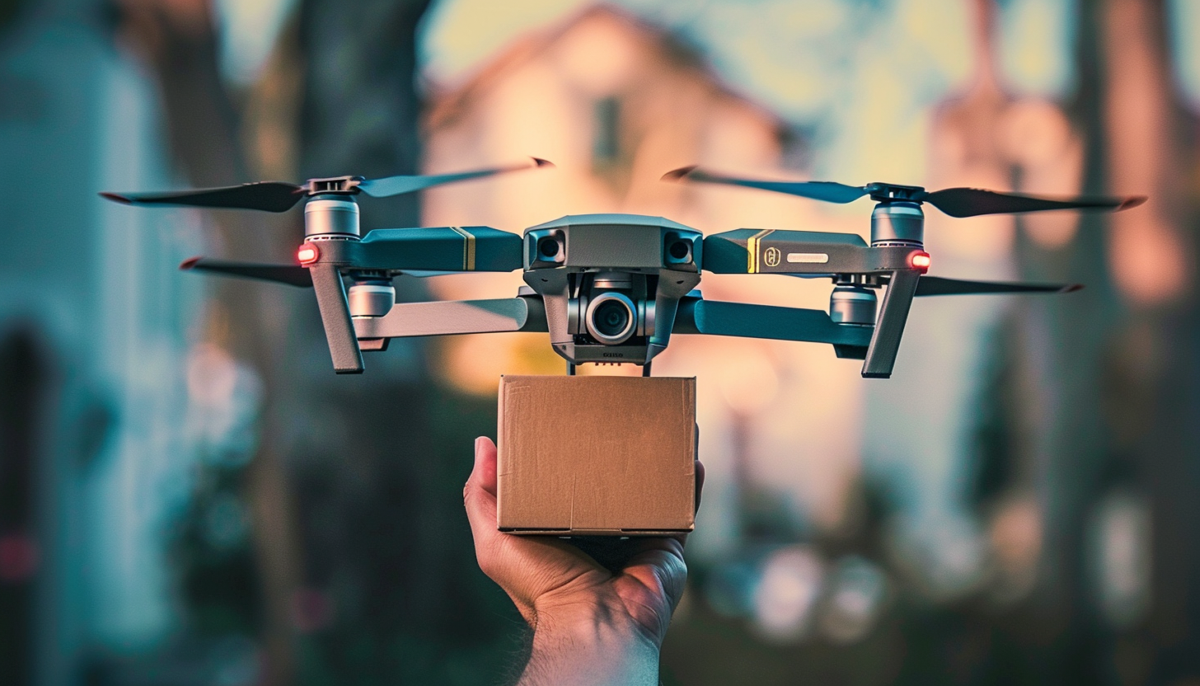
How to Start a Drone Business
Drones have evolved from niche hobbyist gadgets to essential tools across various industries. This shift has opened many opportunities for entrepreneurs eager to explore innovative business ventures. While our drone lessons may seem to be aimed at giving you the skills needed to find a drone job, they can also teach you what you need to create a drone job of your own.
In this guide, we’re going to look at some of the exciting drone business opportunities that exist and talk through how you can make these dreams a reality.
Exploring Drone Business Opportunities
The drone industry is bustling with potential business opportunities that cater to diverse needs and sectors. Let’s look at four of the many opportunities that exist for those looking to start their own drone business.
- Aerial Photography and Videography for Real Estate: The real estate market thrives on compelling visuals, and drones offer a unique perspective that ground-based photography cannot match. Drone entrepreneurs can tap into this demand by providing high-quality aerial shots and videos that showcase properties in their entirety, offering panoramic views and highlighting the property’s layout and surrounding landscape. This service isn’t limited to residential real estate; commercial properties, construction sites, and large estates also benefit from aerial documentation, providing a comprehensive view that can boost sales and marketing efforts.
- Inspection Services: Drones have revolutionized inspections in various industries. From the structural assessment of bridges and buildings to the surveillance of power lines and wind turbines, drones offer a safer and more efficient alternative to manual inspections. By utilizing drones with high-resolution cameras and sensors, businesses can perform detailed inspections without scaffolding, ladders, or helicopters, reducing risk and cost while improving accuracy and turnaround time.
- Agriculture and Land Management: The agricultural sector has embraced drones to collect data on crop health, irrigation needs, and pest pressures. Drones equipped with multispectral cameras can provide farmers valuable insights into their fields, enabling precision agriculture practices that optimize resources and yield. Beyond crop monitoring, drones are critical in land management, assisting in soil analysis, mapping, and planting.
- Delivery Services: As e-commerce grows, the demand for efficient delivery solutions does as well. Drones present an innovative approach to delivery, capable of reducing shipping times and costs, particularly for lightweight packages. Although still in the early stages of regulatory approval and widespread adoption, drone delivery services represent a new frontier for entrepreneurs willing to navigate the challenges. Aside from regulatory hurdles, drone battery life is one of the biggest limiting factors for this business opportunity. As drone technology evolves, we’ll likely see models that last more than long enough to deliver packages and make a return trip.
These are just a few ideas. The sky is the limit (pun intended) when it comes to potential drone business opportunities.
Getting Started: Compliance and Certification
Before you start a drone business, you’ll need a solid understanding of the regulatory landscape to ensure safe and legal operations. The cornerstone of compliance for commercial drone activities in many countries, including the United States, is obtaining the necessary certifications and adhering to aviation authority guidelines like those set forth by the Federal Aviation Administration (FAA).
- FAA Part 107 Certification: For U.S.-based entrepreneurs, the FAA Part 107 certification is essential for commercial drone operations. This certification demonstrates a pilot’s understanding of airspace regulations, operational requirements, and safety practices. To obtain it, candidates must pass a knowledge test that covers a broad range of topics, from weather patterns to radio communication.
- Specialized Certifications for Specific Industries: Beyond the Part 107 certification, certain drone applications may require additional qualifications or specialized training. For instance, conducting thermal imaging inspections or advanced aerial mapping might necessitate further education and certification. These credentials enhance the business’s credibility and ensure operations are performed proficiently and safely.
Navigating the ever-changing regulatory environment is a crucial first step in launching a drone business. By securing the necessary certifications, entrepreneurs comply with legal requirements and gain a competitive edge through demonstrated knowledge and commitment to safety.
Crafting a Business Model Around Your Drone Idea
A well-thought-out business model is the backbone of any successful drone business, providing a clear roadmap for creating value, reaching target markets, and achieving profitability.
- Market Analysis and Value Proposition: Start with a thorough analysis of the market you wish to enter, identifying potential customers, competitors, and market gaps. For example, if you’re entering the aerial photography market for real estate, consider the unique aspects of your service that will appeal to real estate agents or property owners. Your value proposition might focus on the speed, cost-effectiveness, and unique perspectives drones can provide compared to traditional photography services.
- Revenue Streams and Pricing Strategy: Determine how your business will generate revenue. Will you charge per project, offer subscription-based access to your services, or utilize a freemium model with paid upgrades? Pricing strategy is also critical, balancing competitive pricing and sustainable profit margins.
- Operational Efficiency and Scalability: Consider the logistics of your drone operations, including the acquisition of drones, maintenance, and travel to sites. Streamlining these processes will improve efficiency and reduce costs.
- Customer Relationships and Channels: Building strong client relationships is vital. Determine the most effective channels for reaching your target audience, whether through online marketing, partnerships, or direct sales efforts.
Operational Essentials for Drone Businesses
- Technology and Equipment: The backbone of any drone service is the technology it employs. This goes beyond the drones themselves to include the software for data analysis, editing software for video and photography, and maintenance tools. Depending on the services offered, you might need drones with specific capabilities, such as thermal imaging for inspection services or precision GPS for mapping.
- Logistical Planning: Efficient operations require meticulous planning, especially when managing multiple projects across different locations. This involves scheduling flights, obtaining necessary permissions for aerial operations, and ensuring all safety measures are in place. Effective logistical planning minimizes downtime and maximizes the productivity of your drone fleet.
- Data Management and Security: For many drone services, especially those involving inspections, mapping, and aerial photography, handling large volumes of data securely is crucial. Implement robust data storage, processing, and delivery systems to ensure your clients’ information is protected and accessible when needed. Compliance with data protection regulations is also essential to maintain trust and integrity in your business operations.
- Customer Support and Communication: Establishing clear lines of communication with clients is vital. This includes setting expectations, delivering regular updates, and responding to inquiries and feedback.
Marketing Strategies for Niche Drone Services
In a market as competitive and innovative as drone services, having a robust marketing strategy is key to standing out and attracting customers. Tailoring your marketing efforts to your specific niche, whether it’s aerial photography for real estate or precision agriculture services, will increase your visibility and appeal to your target audience.
- Digital Presence: An engaging and informative website serves as the central hub for your marketing efforts. It should showcase your services, highlight past projects through portfolios or case studies, and provide easy ways for potential clients to contact you.
- Social Media Engagement: Platforms like Instagram, Facebook, and LinkedIn are powerful tools for showcasing your drone services visually and connecting with your target market. Regular posts featuring high-quality drone footage, industry insights, and behind-the-scenes looks at your operations can engage potential customers and build your brand’s community.
- Content Marketing: Providing valuable content, such as how-to guides, industry analyses, and case studies, can position your business as a thought leader in your niche. This helps with SEO and builds trust with potential clients who see you as an authoritative and knowledgeable service provider.
- Targeted Advertising: Utilize online advertising platforms to reach specific demographics or geographical areas relevant to your niche. Carefully crafted ads on Google, Facebook, or industry-specific websites can drive traffic to your site and generate leads.
- Networking and Partnerships: Building relationships with related businesses or industry influencers can open up opportunities for referrals, joint projects, and collaborative marketing efforts. Attend industry conferences, join professional associations, and actively participate in online forums to expand your network.
Final Thoughts on Starting a Drone Business
Launching a drone business presents unique opportunities and challenges. From obtaining the necessary certifications and understanding regulatory requirements to developing a robust business model and implementing effective marketing strategies, success requires creativity and a commitment to excellence.
By exploring the potential within various drone service niches, staying aware of industry developments, and continuously striving to improve operations and service offerings, you can build a thriving business that capitalizes on the growing demand for drone technology.

Nationals 2026
is around the corner.

Aerial Perspectives Podcast

Discover the exciting world of drones with Aerial Perspectives! Each episode takes you behind the scenes with drone pilots from diverse industries–cinematography, construction, inspection, agriculture, and more.





